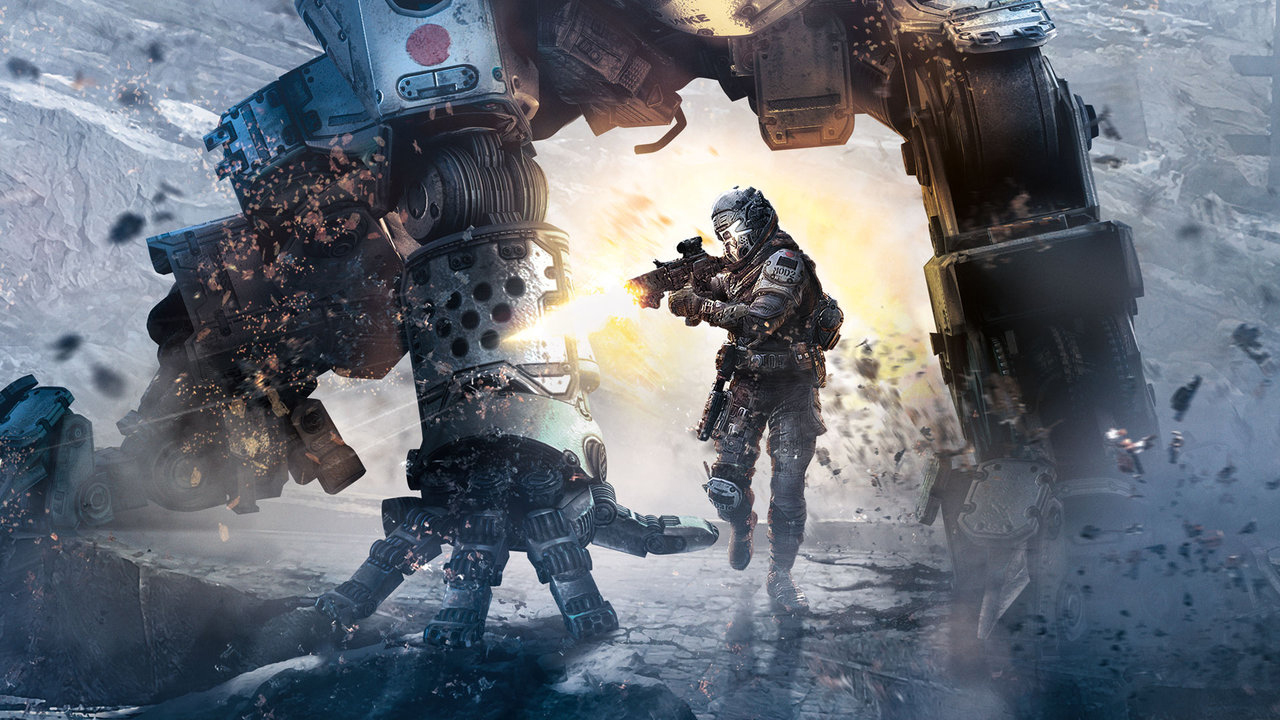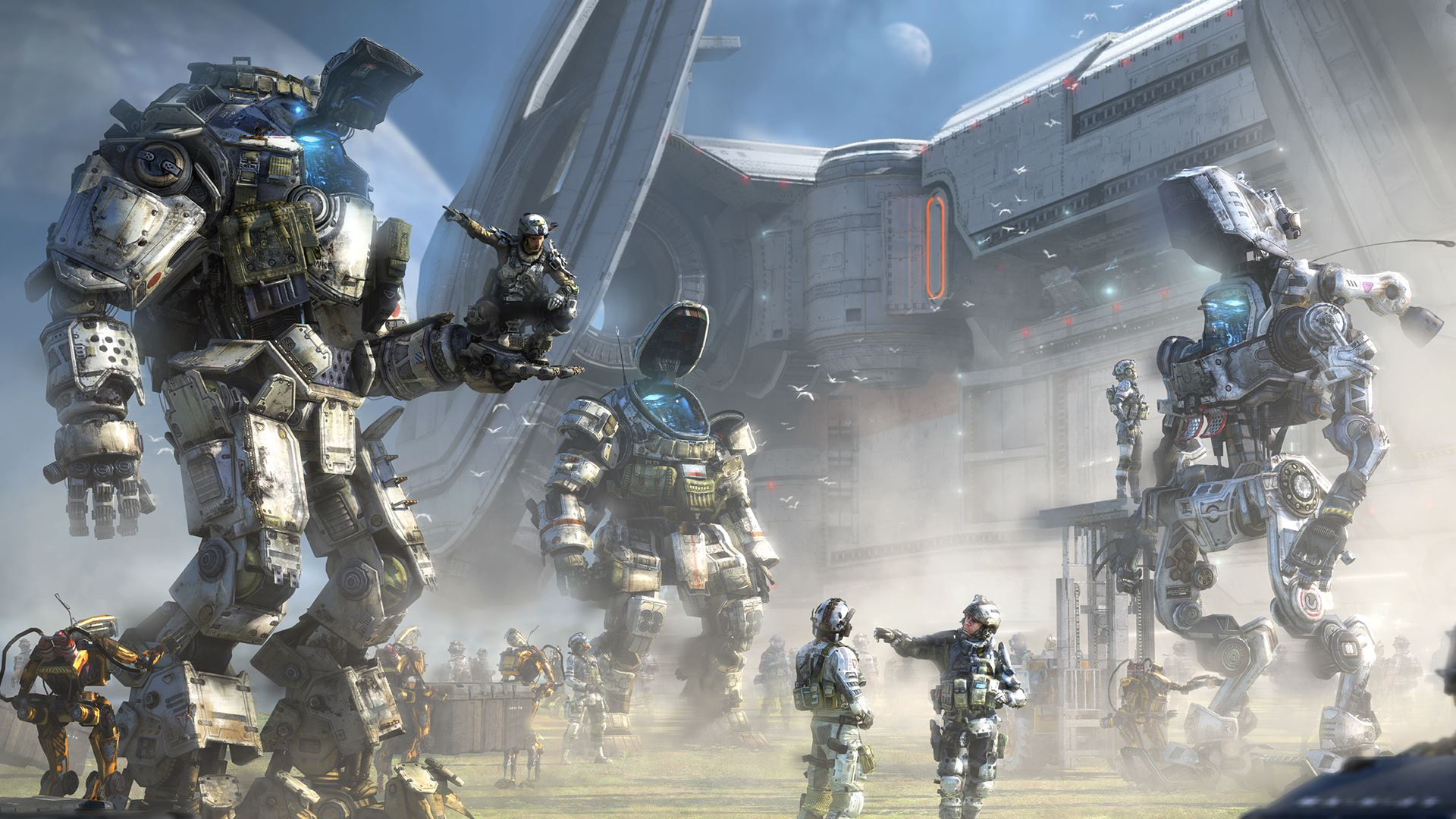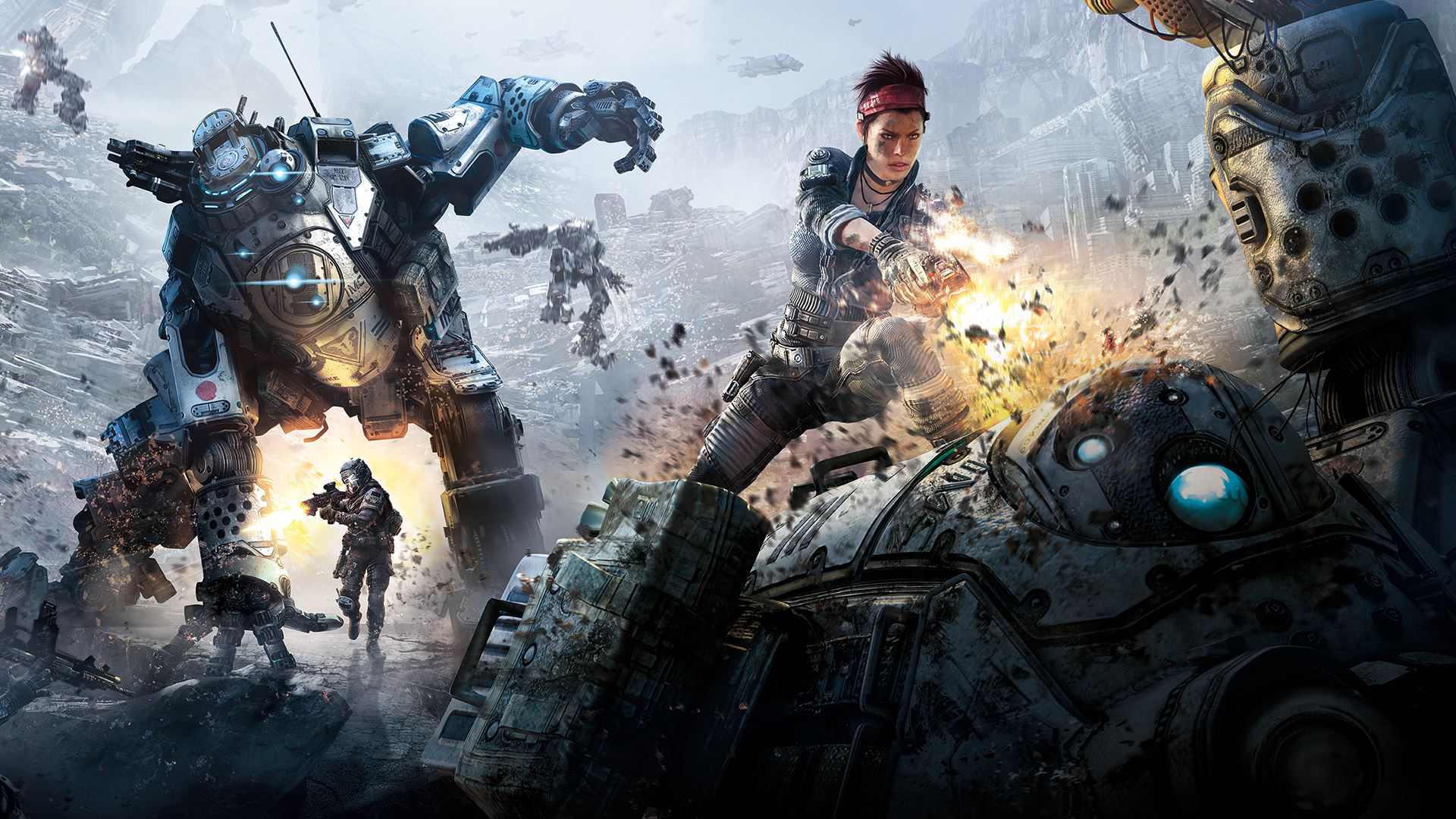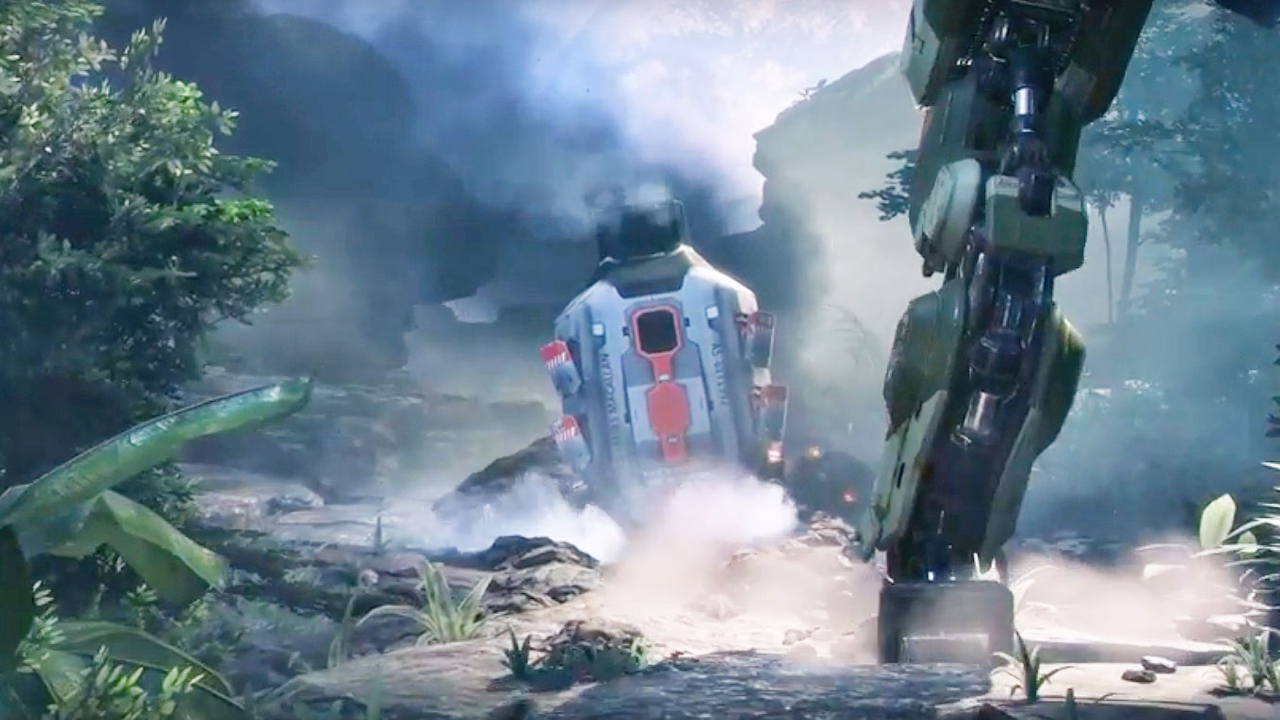To succeed Titanfall 2 needs to learn from Destiny, COD, and er, Evolve
Sometimes the best ideas need space to grow. Titanfall was one of the first genuinely strong console exclusives of this generation: a game built on a platform of fresh ideas and polished gameplay that really hooked players... for about a month. After that initial rush of enthusiasm, Titanfall’s playerbase fell off a cliff. People who felt generally positive about it weren’t enticed to keep playing, and while it would be easy to point to the Xbox One’s fairly small user base at the time, the game also launched on PC where it similarly failed to install itself as a long term proposition.
So what does Titanfall 2 have to do to keep us interested for more than a handful of pleasant hours? The key is learning not only from the first game, but also from the competition.
One important step for building a successful sequel will be a long, hard assessment of the first game’s content. Titanfall has no traditional single-player elements, and the narrative - or what there is of it - is delivered haphazardly through in-game dialogue, often drowned out by the concussive sounds of small arms fire and giant robots blowing up. The focus is clearly on multiplayer, and sure, that’s great fun, with the mechs and parkour adding interesting wrinkles to the online shooter formula. But a few hours in, the novelty fades, the core of the game becomes very familiar. It feels doubly-so now, after Black Ops 3 has reappropriated some of TitanFall’s coolest tricks for its own online offering.

And unfortunately, even the creators of Call of Duty (who left Infinity Ward to create TitanFall developer Respawn) will struggle to compete with Call of Duty. The online shooter space is hugely crowded at the moment, and to carve out a meaningful part of it for any lengthy period of time requires something hugely significant, maybe even revolutionary. Even fragmenting the playerbase of COD or Destiny is a mighty challenge. Just look at what happened to the game that dared to be different: Evolve.
Evolve attempted to take a solid shooter core and build a gimmicky shell around it. It was a great premise, on paper: one player plays as a giant, rampaging monster while the others assemble a team of human hunters to try to take the beast down. The buzz that early marketing generated for Evolve was understandable: it’s an idea with some flash. Sadly, the finished product is a one trick pony, and the trick isn’t even that great. The shooting is competent and fun, but playing as the monster feels lonely and frustrating, and after a couple of hunts the experience for both sides feels worn out. Evolve lacks the two things that create a sustainable arc for a game: diverse (or addictive) gameplay, and the lure of meaningful progression.

Which is where Destiny comes in. Bungie’s story as a developer follows a similar course to West and Zampella’s (the aforementioned minds behind Call of Duty and founders of Respawn). Creators of a massive, runaway success (Halo), Bungie eventually secured its freedom and signed a deal with a new publisher to pursue a new, ambitious project (Destiny). But while Titanfall’s lifespan didn’t extend much out of its release window, Destiny has sustained a sturdy base of very active players for over a year and a half now. So how did Bungie pull it off?
Destiny’s playerbase survived a relative dearth of content at launch because grinding the game feels so damn good. It may have been limited to four planets, but there was always something new to do or discover; endless subtle load-out variations to mess with. Multiplayer has always been a separate thing too, and that’s vital - players can choose to dip into both, or stick with one or the other. Destiny is as social as you want to make it, and as such it suits a wide variety of player tastes. This is something TitanFall 2 simply must embrace to avoid getting stuck in a niche.
Sign up to the GamesRadar+ Newsletter
Weekly digests, tales from the communities you love, and more
The other lesson it can learn from Destiny is one of stuff. Early on, Destiny launched some decent-sized expansions, and kept players involved by offering up condensed bits of its best features, on top of a rotating schedule of Strikes and Missions with increasingly varied and attractive loot. Daily and Weekly activities keep the game in players’ lives - there’s always something worth checking in to see. And loot. Loot is a big carrot - something meaningful for players to keep striving for long after they’ve cleared the campaign and hit the level cap. Big expansions that add this type of content mean players who’ve stuck around have a reason to keep playing, and players that have dropped off have a reason to come back. Can TitanFall 2 realistically offer a compelling loot system? Maybe - it certainly needs to do more than reskin the original game.

Titanfall has a wonderful, gooey center which a far meatier game can be built around. Imagine a robust single player campaign, set in varied environments across different worlds, that builds a narrative around the military role of these huge mechs and their agile, almost superhero pilots. Sounds like a top shelf anime, or the plot of Pacific Rim 2.
Give us sections of intense, kinetic parkour spliced with the big explosive set pieces we know Respawn can deliver. Give us crazy giant mech sequences that show off how cool the Titans are, how huge and powerful they can be, how they fit into interstellar police actions/invasions/defense. Most importantly, give the Titans personality, meaningful differences that feel more interesting than just choosing a class/loadout, and then give us hot robot loot to extend their capabilities, customize them, give players a sense of ownership of and connection to THEIR Titan. Make the progression feel meaningful and important, and give players choices more meaningful than a new scope or larger magazine.

There are other possibilities, too. The Division showed us that building real tension into multiplayer scenarios, extracting loot on a timer while under fire from AI and other players, can add weight and levels of intensity simple deathmatch never reaches. Setting your multiplayer in an open environment creates gameplay opportunities that a standard map never could, and adding real consequences to the outcome of an online skirmish adds a unique sense of gravitas to the proceedings.
The original Titanfall is a sturdy frame with some great nested ideas, begging for a bigger, better sequel to refine and perfect them. With enough time, resources, and loving attention, the bones are there for Titanfall 2 to be an unqualified hit, a game that survives the first few weeks after release and keeps players hungry for years afterwards.
Alan Bradley was once a Hardware Writer for GamesRadar and PC Gamer, specialising in PC hardware. But, Alan is now a freelance journalist. He has bylines at Rolling Stone, Gamasutra, Variety, and more.



